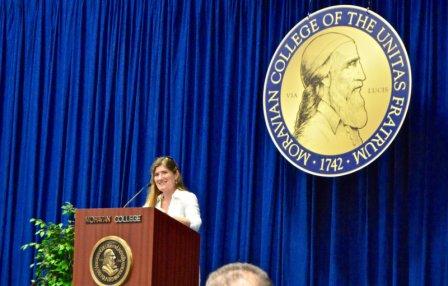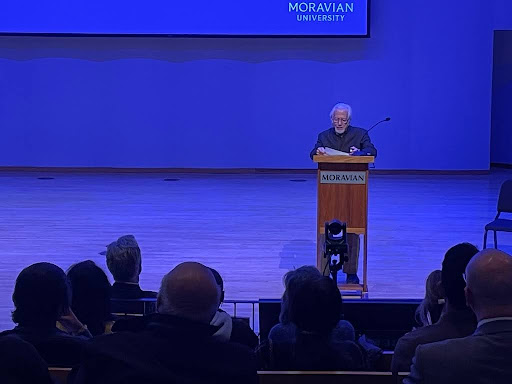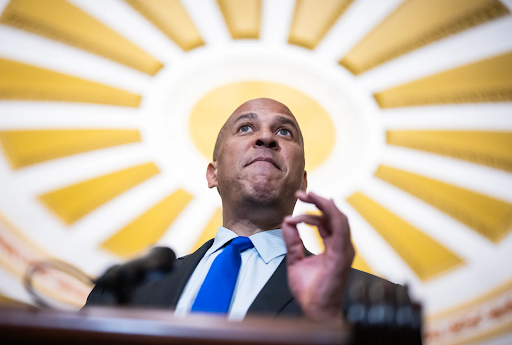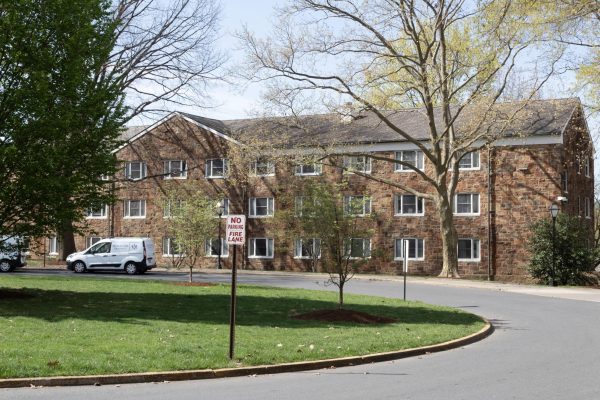Princeton Prof: A Sustainable Planet Starts on Campus

On Monday evening, Sept. 19, the Johnston Hall stage welcomed the founding Director of the Office of Sustainability at Princeton University, Dr. Shana Weber. The two hundred-plus students and faculty in attendance learned not only what it means to be sustainable, but also how the individual can do their part in keeping the planet healthy and green.
In her speech, Weber stressed that it is more than possible to achieve sustainability in our community, but doing that will take a change in perspective first. “We can enact sustainable practices on campus,” Weber said, “but until we make tangible shifts in our viewpoints will we won’t see lasting effects.”
She spoke of a sustainability ethos that stands behind the idea that a shift in human identity is necessary for substantial environmental improvements to be made.
Weber showed the audience a picture of the Sky Woman, part of a Native American creation story that portrays humans as all good beings that are connected to nature. The story depicts the Sky Woman falling into a hole dug deep into the earth and two birds flying down to save her. Weber used the story to demonstrate that kindness and gratitude are essential for survival.
Weber learned that Moravian is starting to take steps to becoming more sustainable. They join many other campus communities she has visited that have also begun their sustainability journeys.
At Princeton University, the campus community uses energy in the form of electricity, chilled water, and steam. A computer science student at the University created an energy tracking app to determine the amount of energy used. The community can now regulate their energy usage, which is an important step toward enacting changes.
“The intersection of action and study nurtures sustainability,” said Weber. “Humanity is extraordinarily creative.”
Weber left the audience with the final idea that collective impact is powerful. If the Moravian community became aware of energy usage and began to nurture a campus-wide sustainability ethos, the College would reap many benefits. It is the job of the individual to shape a sustainable future, but it will never be a lasting endeavor unless each of us participates.







Nick DeSalvo • Nov 19, 2016 at 10:54 am
Great job Erica capturing Dr. Weber’s message to the campus community raising awareness that we all have a role to play in the conservation of natural resources.